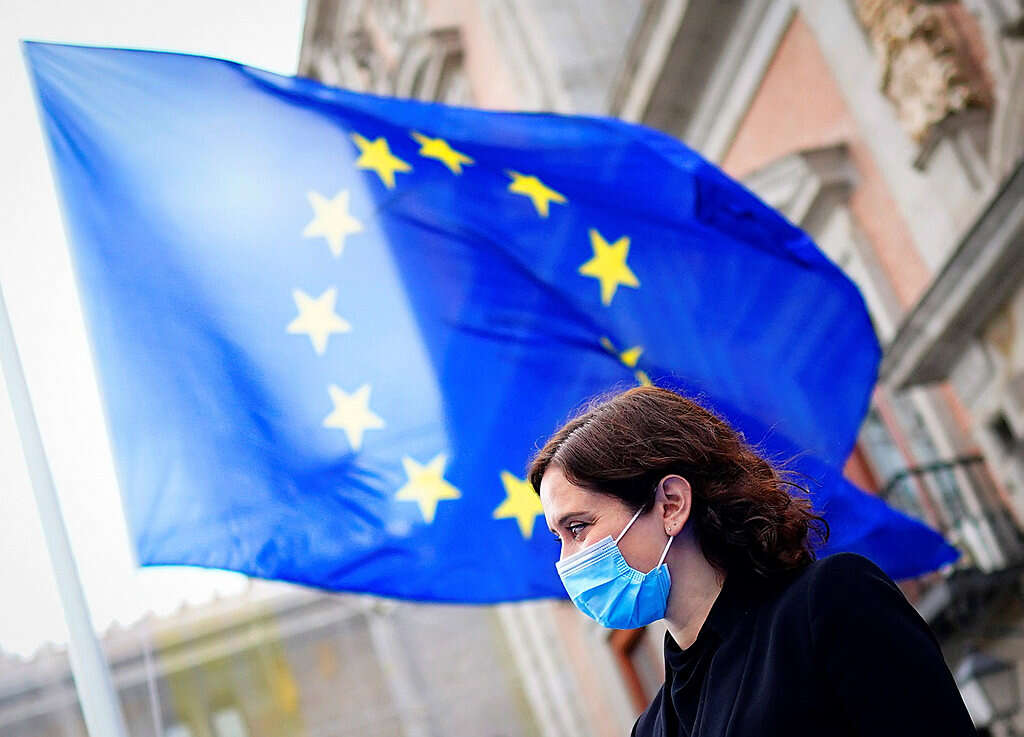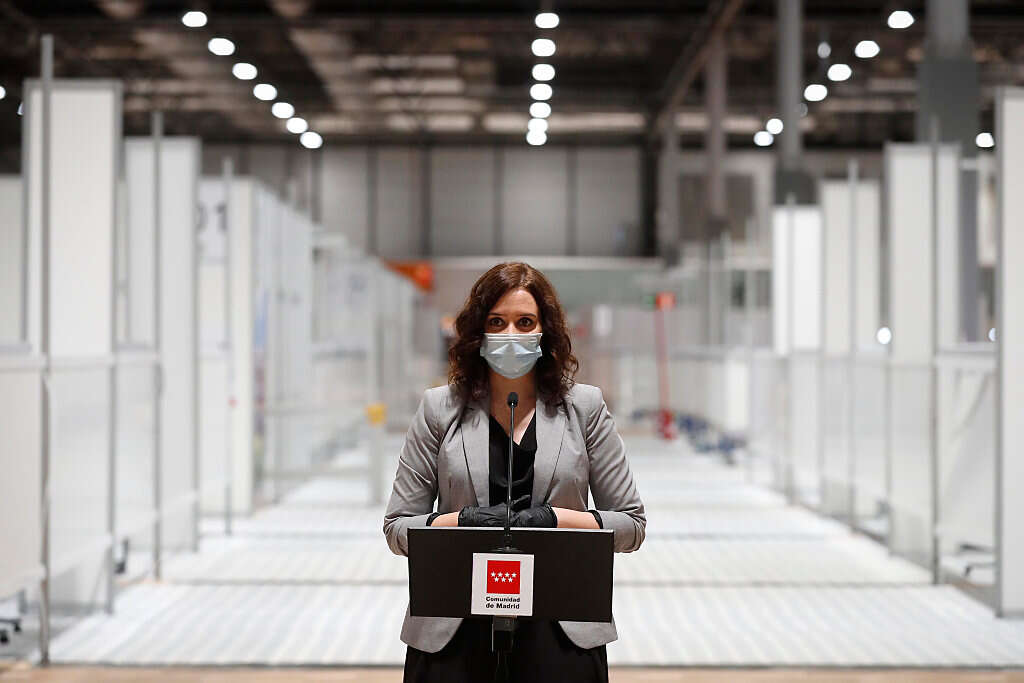The coronavirus outbreak was something of a baptism by fire for Madrid Regional Premier Isabel Diaz-Ayuso. The former journalist-turned-politician with the Spanish People's Party found herself managing a crisis of mammoth proportions as Spain in general and particularly Madrid turned into one of the epicenters of the deadly outbreak in Europe.
According to official data from the federal government in Spain, about 70,000 people were infected with the coronavirus in the province of Madrid and about 9,000 died.
Follow Israel Hayom on Facebook and Twitter
These numbers do not include the number of deceased in nursing homes or those who perished from COVID-19 at home.
Diaz-Ayuso recognized the danger very early on and began implementing curfew measures before the left-wing government imposed a lockdown. Today, she is one of the most outspoken critics of the slow and ineffective way in which the Spanish government's mishandling of the corona crisis, which has so far claimed over 27,000 lives.
She is now also demanding that the government accelerate the return to normal life in and around the Spanish capital.
"These have been some of the most difficult months, but also the most important months of my political career," the Madrid governor said in a special interview with Israel Hayom.
"Life, freedom and liberty are among the most meaningful values to me. The national government did not honor them during the pandemic."

Q: Can you explain why Spain and Madrid became epicenters of the coronavirus outbreak?
"We are one of the most popular tourist attractions in the world and Madrid is the gateway to Spain. Many flights land here, day and night, we have high population density and, in addition, the federal government was late to respond. When it finally did, the virus had already spread throughout Spain, so we were one of the hardest-hit areas."
In early March, as COVID-19 infection rates began rising, Madrid's provincial government implemented curfew measures, while the federal government allowed a mass march on Women's Day and held football games at stadiums, thus accelerating the spread of the virus.
"As early as March 9, we closed down the schools and warned the public that the virus was a threat that should be taken seriously," she said. "From then on, we saw a very significant increase in infection rates without anyone doing anything. We had to respond and tell the government that it was time to do something."
Spain still took a week to declare a national state of emergency.
As the virus raced through Spain, Diaz-Ayuso admits she was concerned the country may we powerless to fight it.
"We didn't have enough respirators and for a few days, I was very worried. At times, there was a feeling that the pandemic couldn't be defeated."
"We now have to prepare Madrid's healthcare system to deal with this virus for the next year or two," she said. "We plan on opening a new hospital, recruit medical teams, and promote safe tourism over the coming months.
"We are expecting very difficult months ahead but we will work to improve the infrastructure as soon as possible."
Q: Madrid is one of the cities that Israelis love to visit. When can they expect to return?
"It's hard to tell. It depends on the decisions of the national government. We're already working with it on allowing international tourism to resume. We have to work on the airport, on tourist safety. We launched international campaigns to encourage tourism, but it all depends on the government.
"I believe we might be able to received tourists in June, but that remains to be seen," she said.

Israel was one of the first countries to express solidarity with Spain and its people during the coronavirus crisis.
The Israeli Embassy in Madrid had Israeli artists and athletes who are popular in Spain send messages of support messages; internationally-renowned singer Achinoam (Noa) Nini held a special benefit concert with all proceeds going to the Madrid Corona Foundation; the Tel Aviv municipality building lit up with the colors of the Spanish flag; twin cities exchanged information on counter-pandemic methods, and President Reuven Rivlin spoke with King Felipe VI, the two expressing their countries' deep solidarity and warm friendship.
"It meant a lot to me because I feel very emotionally connected to Israel," said Diaz-Ayuso, who is considered a great friend of the Jewish state in a country whose government is home to a radical leftist party that supports the boycotting of Israel.
"Israel has a special place for me religiously and because of what we can learn from you. With respect to the coronavirus as well – the use of technology and communication between the government and the public during the epidemic.
"Israel did a great job in the crisis. Israel is also very advanced in terms of security and coordination between emergency services with respect to creating jobs and start-up companies. You are very advanced in these areas."
Q: The United States and other Central American countries recognized Jerusalem as the Israeli capital and moved their embassies there. Will a future conservative government in Spain have the courage to do the same?
"That decision will be made on the national level by the conservative party leader Pablo Casado. We feel very close to Israel."
Q: You have visited Israel, the Golan Heights and the Jordan Valley. Do you understand why Israel will never be able to cede these strategic areas?
"I've always understood why Israel must defend itself. It's something that makes you stronger. A lot of people take liberty for granted. At the same time, Israelis fight for their lives and their freedom every day. It's something I deeply admire about Israel. "
Subscribe to Israel Hayom's daily newsletter and never miss our top stories!




